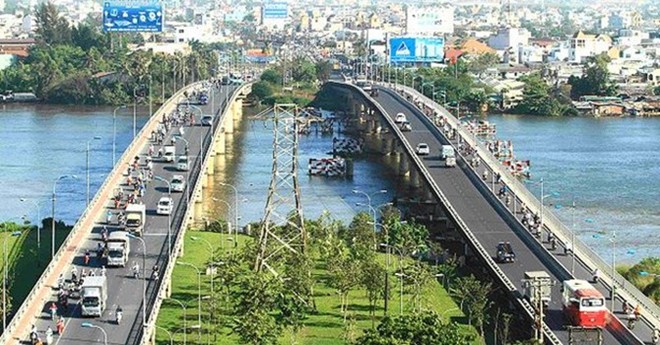The International Monetary Fund (IMF) has forecast Vietnam’s economic growth would cool to 6% this year due mainly to weaker demand on global markets and the serious impact of drought and saltwater intrusion on the country’s agriculture.

The projection was part of a conclusion of John Nelmes after he led an IMF mission team to Hanoi and HCMC on April 6-22 to conduct the 2016 Article IV consultation discussions with Vietnam.
“For 2016, growth is expected to ease to around 6%, mainly reflecting weaker external demand and severe drought and salinity of arable land that have adversely affected agriculture,” Nelmes said.
The IMF’s projected growth is lower than the gross domestic product expansion of 6.7% targeted by the Government and 6.68% last year, the highest since 2008.
In the conclusion, Nelmes said Vietnam has achieved commendable macroeconomic outcomes. Last year growth was strong, inflation fell to low levels, foreign direct investment was robust and important new trade agreements were successfully negotiated.
The achievement of macroeconomic stability provides a solid foundation for a broadly positive economic outlook, although risks and medium-term challenges exist, according to Nelmes.
He said underlying inflation should remain low, although headline inflation is expected to rise modestly due to a pick-up in food prices and planned increases in administered prices for education and health services.
The current account surplus is forecast to ease in the near term with slowing external demand although foreign direct investment would remain strong.
Downside risks to outlook
In the statement, Nelmes pointed out downside risks to the outlook arise from the drought, slower global growth, and spillovers from global financial market volatility.
Rapidly rising public debt is also a concern as it reduces fiscal room for maneuver and could pressure domestic interest rates.
Despite improvements, implementation of a number of key measures is needed. On the upside, rapid implementation of new free trade agreements could help propel domestic structural reform.
“The mission and the authorities discussed building on recent achievements through a second generation of economic reforms that would strengthen resilience, mitigate risks, and place Vietnam on a higher sustainable growth path that delivers robust long-term prosperity,” Nelmes said.
Fiscal policy has registered deficits averaging around 6.5% of GDP since 2012, driving public and publicly guaranteed debt up to around 62% of GDP this year.
Therefore, the mission recommended a growth-friendly fiscal consolidation to reduce the fiscal deficit to around 3% of GDP by 2020 and put public debt on a sustainable and downward path.
Nelmes suggested the consolidation to focus on broadening the revenue base, and safeguarding spending on high-quality public investment in education, health, and infrastructure, while resources are made available to resolve non-performing loans and strengthen capital in state-owned banks.
Measures for stability
The mission considered that monetary policy should remain on hold as recent domestic shocks feed through the economy so long as underlying inflationary pressure remains muted. Should evidence of second-round effects on inflation emerge, some tightening of monetary policy would be warranted.
Nelmes described the flexible exchange-rate mechanism introduced earlier this year as a commendable development.
“Permitting greater exchange-rate flexibility and strengthening monetary policy instruments, while moving gradually towards using inflation as the nominal anchor for monetary policy, will allow Vietnam to safeguard macroeconomic stability while buffering external shocks,” he said.
According to Nelmes, the consultation discussions also covered financial-sector, structural and State-owned enterprises (SOE) reforms that are critical for raising productivity and medium-term growth.
Macro-financial stability and the foundation for robust growth will be achieved by accelerating the resolution of non-performing loans in banks and in the Vietnam Asset Management Company.
It is important to strengthen banks’ capital through increased private-sector participation and budget resources for state-owned banks, improved operational management, and adoption of international financial reporting standards.
SOE reforms should be accelerated through more rapid and comprehensive equitization and divestment of non-core assets, and transparency of equitization proceeds and their use.
Nelmes noted that productivity gains would be further supported by creating a level playing field in access to resources for the private sector, supporting research and development, improving the efficiency of public investment, and expanding vocational training to address skill mismatches.
SGT